Lovell Pugh-Bassett leads & inspires in Camden County
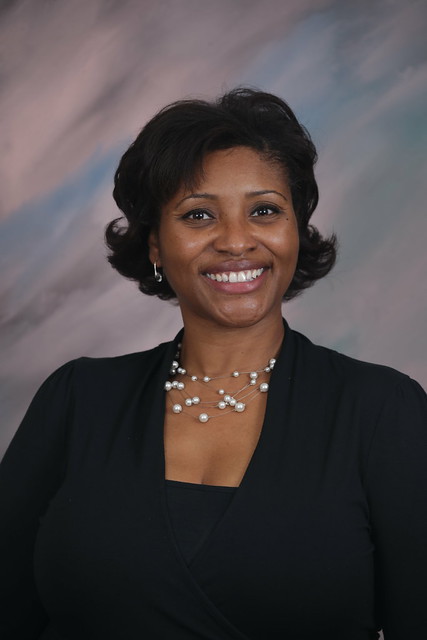
By Clyde Hughes | AC JosepH Media
Dr. Lovell Pugh-Bassett is one of the top African-American educators in South Jersey, serving as the Camden County interim executive county superintendent for 85,000 and on the Camden College board of trustee.
In a recent interview with Front Runner New Jersey.com, Pugh-Bassett talks about the decision that led her to the education field, the challenges many students face today, and being a positive example for all students, particularly students of color.
As a member of Delta Sigma Theta Sorority, Pugh-Bassett said it important for her to make a continued connection to advocacy work that can and will impact the lives of young people.
She said she feels she has received awards from the faith education leaders have placed her to held mold the lives of young people.
She as worked her way through the ranks as a classroom teacher, into administration and now the upper echelons of educational decision-making at the New Jersey Department of Education. She said that has given her an opportunity to bring attention to take action on issues facing those young people who are often marginalized by society.
She has led Camden County schools since 2015. She has taught at Temple University and Community College of Philadelphia with the TRIO/Upward Bound program, and St. Lawrence University. At the New Jersey Board of Education, Pugh-Bassett held a wide range of positions, from program development specialist, social health and science coordinator, No Child Left Behind coordinator and education specialist.
In her own words, here is FRNJ’s question-and-answer session with Pugh-Bassett.
FRNJ: What have you enjoyed the most out of your 25-plus years in education? Why?
Pugh-Bassett: The most enjoyable thing about being an educator, but for a moment or for a lifetime, is hearing back from the students with whom you have impacted. In education, you don’t often reap the benefit of your impact on the “bottom line” until students have had an opportunity to experience life and reflect on those who have ushered them into their success. Be it a headline or a footnote, when a student comes back to say “thank you” or “you changed my life” in a big or small way, it is by far the most rewarding part of being an educator. After all, they are ultimately your consumers.
FRNJ: Did you always know you wanted to be in education? What confirmed that this would be your career?
Pugh-Bassett: I did not always want to be an educator. When I first enrolled in college, I was determined to be a mathematician that is, until I took college level math! My journey towards education started when I gravitated towards history and met a professor who saw something in me and decided to offer me a first ever teaching assistant opportunity for its first ever African American Studies course in undergrad. It was then that I not only realized that I was a lover of history, but a lover of teaching as well. When I started working with the Harlem Freedom Schools over the summer during my undergraduate experience, I realized that I was in my element and education was where I would invest my skills. That experience really defined me as an educational advocate.
FRNJ: What has been your biggest challenge as superintendent? Biggest joy?
Pugh-Bassett: My biggest challenge and my biggest joy are one in the same. Two and a half years ago, I decided that I wanted to boldly embark upon a county-wide initiative to address issues of equity and access where districts would take bolder, more thorough looks at what policy, practice and programs impact academic barriers to the success of ALL students. While I knew that many districts were making strides in this area in their own individual ways, I wanted to consider a coordinated effort to address this issue where we could openly discuss strategies to address this as a county.
This, however, was not an easy endeavor to embark upon, as districts were already trying to address the complexity of issues that they face on a day to day basis. I knew that introducing this topic would first force all of us to have some difficult conversations about our own prejudices, and that I would need to create an environment that was safe for them to share and admit their shortcomings as a district. As you can imagine, being that vulnerable to someone at the NJDOE whose office is responsible for district monitoring is not the easiest thing to do! As I shared my own experiences as a parent of two children (one who already graduated from a NJ public school and one who currently attends) and the importance on student success, the conversations became easier to manage. Before we knew it, the initiative had expanded beyond the superintendents and seeped into the work of the curriculum consortium; we now had two parallel paths addressing issues of equity and access that, in the past year merged as one.
In May, we culminated with a “student voice” component of the work where we received feedback from 17 students to discuss how districts can do a better job at addressing these issues. It was by far the most joy I can say I’ve had in the years I’ve served in this role. Not only was I ecstatic that this initiative had taken root and is still being carried forward, but now we have embedded a student strand that only rejuvenated our desire to continue the work! I am indebted to all the administrators in the districts we serve for their desire to take this issue on and not allowing it to be a temporary focus. We will be meeting over the summer to determine how to build upon our work for the upcoming school year.
FRNJ: What do you see as the today’s students biggest challenge as to when you first started?
Pugh-Bassett: Students are faced with so many different “societal ills” now than when I first began my career in education. Social media often gets blamed for some of the “issues” students face, but if used for good and not for evil it certainly could expand a student’s universe in ways that weren’t available 20-plus years ago. Right now, we are facing a serious issue with vaping and the use of opioids among our young people. We are also finding increased issues of anxiety and depression in our young people as well. Therefore it is so important that we pay attention to the needs of students; respond to their “voice†to ensure that while they are in school, we are providing them with ways in which these challenges can be avoided or overcome.
FRNJ: What do you feel you add to Camden College as a board of trustee member?
Pugh-Bassett: Serving on the Camden College board of trustees is one of my favorite assignments in this position and one with which I would love to maintain long after I leave. I believe that my connection with the prek-12 educational community is the most logical fit to the mission of the college to serve as part of that educational continuum. Sharing trends and best practices in the preK-12 environment provides the college with a resource that can better inform how they service the community of stakeholder in which they serve. More importantly, I bring to bear an educational advocacy tone that also resonates with my love of higher education and my commitment to ensuring that students can take advantage of all the opportunities that are available to them.
FRNJ: How important do you think it is to be a role model as an African-American woman over 85,000 students? Why?
Pugh-Bassett: I don’t necessarily desire to be a “role model” as much as I seek to be a living example, a testimony of how someone from the Bronx, N.Y., can journey through life with obstacles seen and unseen and become a part of a broader educational solution. I want to be an example to all, however; it is critical that students of color see their potential in me and others like me, so that they have something to cling to in order to motivate them to succeed. I am so much more than my bachelor’s, master’s or doctorate degrees. I am a compilation of my life experiences and those who have journeyed beside me (as well as those who have created obstacles) to make me the person that I am today.
FRNJ: What example do you try to set for others who see you in such a powerful position?
Pugh-Bassett: I SEEK TO STAND IN MY TRUTH AT ALL TIMES. Even when doing so is not the most popular stance. It is important to me that people understand that everyone has a story. When I am judged only by my success, I remind them that “I don’t look like what I’ve been through….” It is important to respect the story that shapes the person that you see before you.
FRNJ: Where do you see yourself in five years?
Pugh-Bassett: It is my hope that I will have been five years more impactful on more students than I am now. No matter what capacity of work, I will always be an educational advocate. This position is one in which I can honestly say allows me to express my advocacy in my work. I am working to increase the life chances of ALL students in the county of Camden. Should the job title change in five years, I will remain an educational advocate.
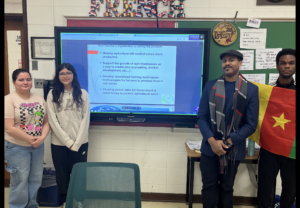
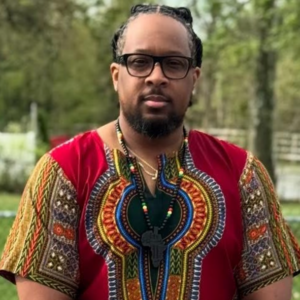

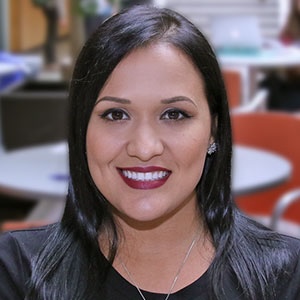

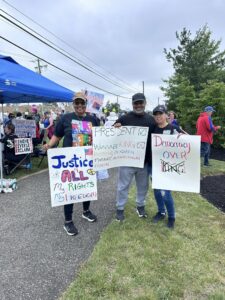
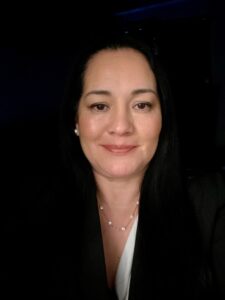
1 thought on “Lovell Pugh-Bassett leads & inspires in Camden County”